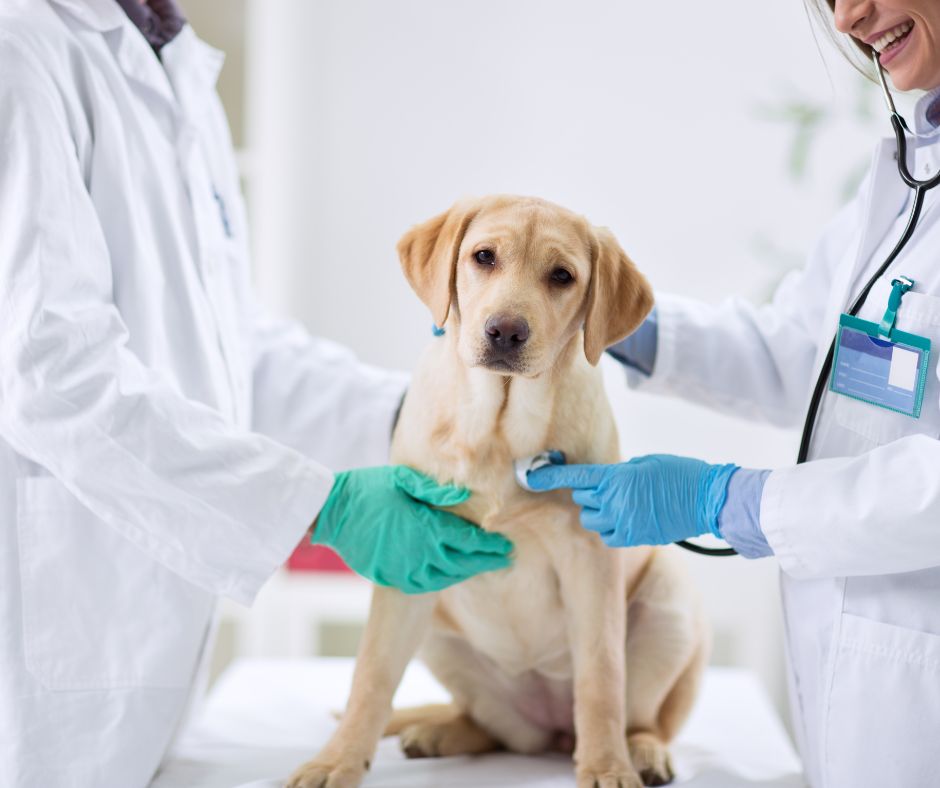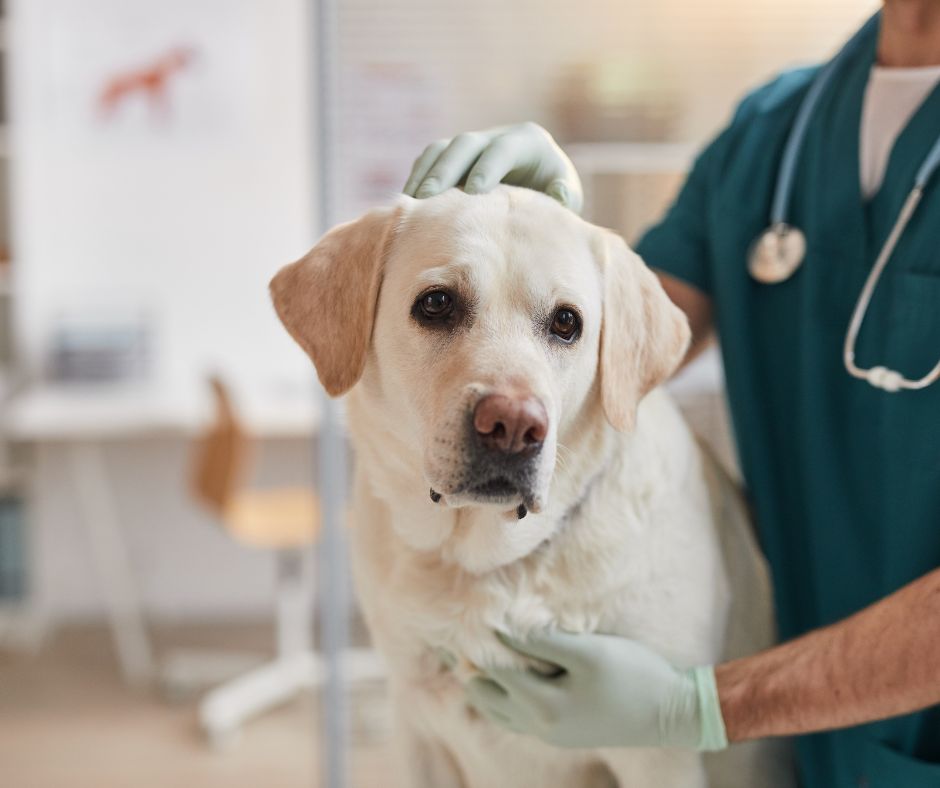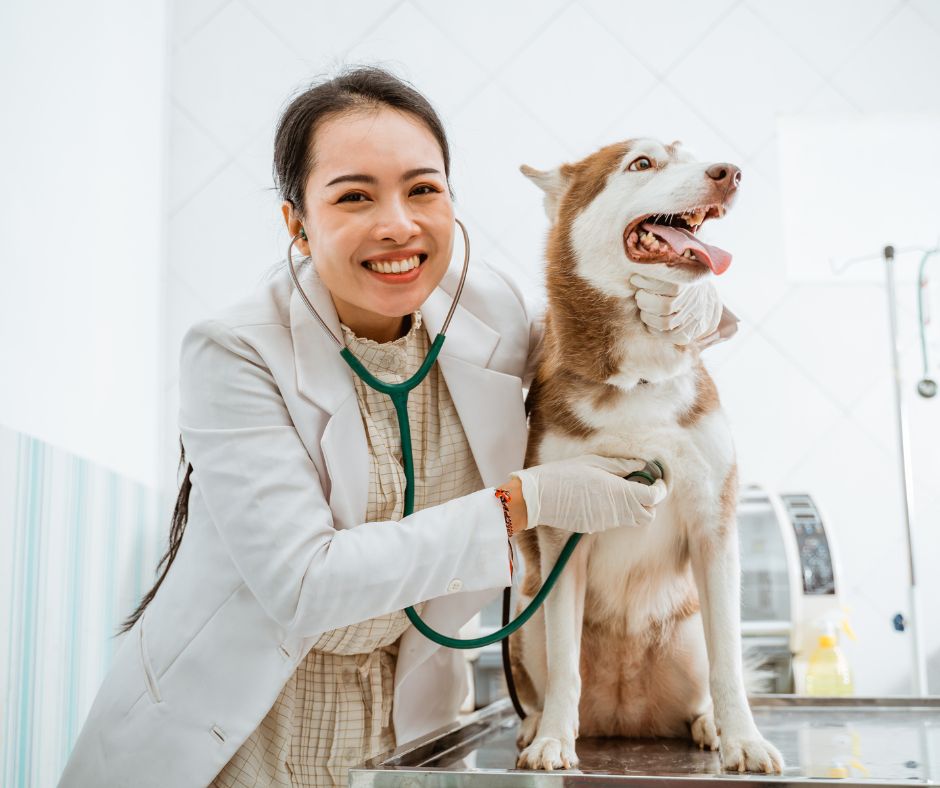
Regular veterinary check-ups are essential for maintaining your dog’s health and well-being. Just like humans, dogs require routine medical care to monitor their health, detect any potential issues early on, and ensure they live a long and healthy life. In this guide, we’ll explore the importance of regular vet check-ups for your furry friend and how they contribute to their overall health and happiness.
1. Preventive Care
Preventive care is the cornerstone of regular vet check-ups. These appointments allow your veterinarian to conduct thorough physical examinations, assess your dog’s overall health, and identify any potential health issues before they become serious problems.
By addressing health concerns early on, you can prevent them from escalating into more significant and costly issues down the road.
2. Vaccinations and Preventive Medications
Regular vet check-ups are essential for ensuring your dog receives necessary vaccinations and preventive medications to protect against common diseases and parasites.
Vaccinations help bolster your dog’s immune system and prevent the spread of contagious diseases, while preventive medications such as flea, tick, and heartworm preventatives help safeguard against parasites that can pose serious health risks to your dog.

3. Early Detection of Health Issues
One of the most significant benefits of regular vet check-ups is the early detection of health issues. During these appointments, your veterinarian will perform a comprehensive physical examination, which may include checking your dog’s eyes, ears, teeth, heart, lungs, and overall body condition.
They may also recommend additional diagnostic tests, such as bloodwork or urinalysis, to screen for underlying health problems that may not be apparent during the physical exam. Early detection allows for prompt intervention and treatment, improving the prognosis and outcome for your dog.
4. Tailored Health Recommendations
Regular vet check-ups provide an opportunity for your veterinarian to offer tailored health recommendations based on your dog’s individual needs. They can provide guidance on nutrition, exercise, dental care, parasite prevention, and other aspects of your dog’s care to ensure they remain happy and healthy.
Your veterinarian can also address any questions or concerns you may have about your dog’s health and well-being, offering expert advice and support.
5. Monitoring Age-Related Changes
As dogs age, they may experience age-related changes in their health and behavior. Regular vet check-ups are essential for monitoring these changes and addressing any age-related health issues that may arise.
Your veterinarian can offer guidance on senior care, including nutritional needs, joint health, mobility issues, and cognitive changes, to help ensure your senior dog enjoys a comfortable and fulfilling life in their golden years.
6. Building a Relationship with Your Veterinarian
Regular vet check-ups also help build a strong relationship between you, your dog, and your veterinarian. By visiting the vet regularly, you and your dog become familiar with the clinic environment, making future visits less stressful for everyone involved.
Your veterinarian will get to know your dog’s unique health history, personality, and needs, allowing them to provide personalized care and support.
7. Peace of Mind
Perhaps most importantly, regular vet check-ups provide peace of mind knowing that you are doing everything you can to keep your dog healthy and happy.
By staying proactive about your dog’s health care and investing in preventive measures, you can enjoy peace of mind knowing that you are providing the best possible care for your furry friend.
Regular vet check-ups are essential for maintaining your dog’s health, preventing disease, and ensuring they live a long and happy life. By scheduling routine appointments with your veterinarian, you can take proactive steps to monitor your dog’s health, detect any potential issues early on, and receive expert guidance on providing the best possible care for your furry friend.
Remember, your veterinarian is your trusted partner in your dog’s health care journey, so don’t hesitate to reach out with any questions or concerns about your dog’s health and well-being. With regular vet check-ups and preventive care, you can help your dog live their best life for years to come.
FAQs
Regular veterinary check-ups are crucial for maintaining your dog’s health because they allow veterinarians to detect diseases and conditions early, when they are most treatable. These check-ups often include a thorough examination of your dog’s body, including checks for signs of emerging health issues, dental assessments, and updating necessary vaccinations. Early detection of issues like dental disease, obesity, arthritis, and heartworm can make treatment more manageable, less expensive, and more likely to succeed, ensuring your dog maintains a high quality of life.
The frequency of veterinary visits depends on your dog’s age, medical history, and specific health needs. Generally, it is recommended that puppies up to a year old receive multiple check-ups, often correlating with their vaccination schedule. Adult dogs (1-7 years old) should have an annual wellness exam, while senior dogs (over 7 years old) may require bi-annual visits due to the increased risk of health problems as they age. However, your vet may recommend a different schedule based on your dog’s individual health.
During a vet check-up, your veterinarian will conduct a comprehensive physical examination of your dog. This includes checking the dog’s weight, examining the eyes, ears, and teeth, listening to the heart and lungs, feeling the abdomen to assess internal organ health, and assessing the dog’s coat and skin for any signs of illness or parasites. The vet may also recommend blood tests, urine tests, fecal exams to check for parasites, or other diagnostic tests as part of a preventative health care plan. Vaccinations may be updated, and it’s also a good opportunity to discuss nutrition, behavior, and any concerns you may have about your dog’s health.
Regular vet visits contribute to a longer, healthier life for your dog. They allow for early detection and management of potential health issues, reduce the risk of severe diseases through vaccination and preventative care, and offer a chance to adjust your dog’s diet, exercise, and care routines as they age. Consistent veterinary care can help avoid the development of chronic conditions, improve the overall quality of your dog’s life, and potentially save you money on treatment costs for preventable diseases. Regular interaction with the vet also helps your dog become more comfortable with medical environments, making future visits less stressful for both of you.


